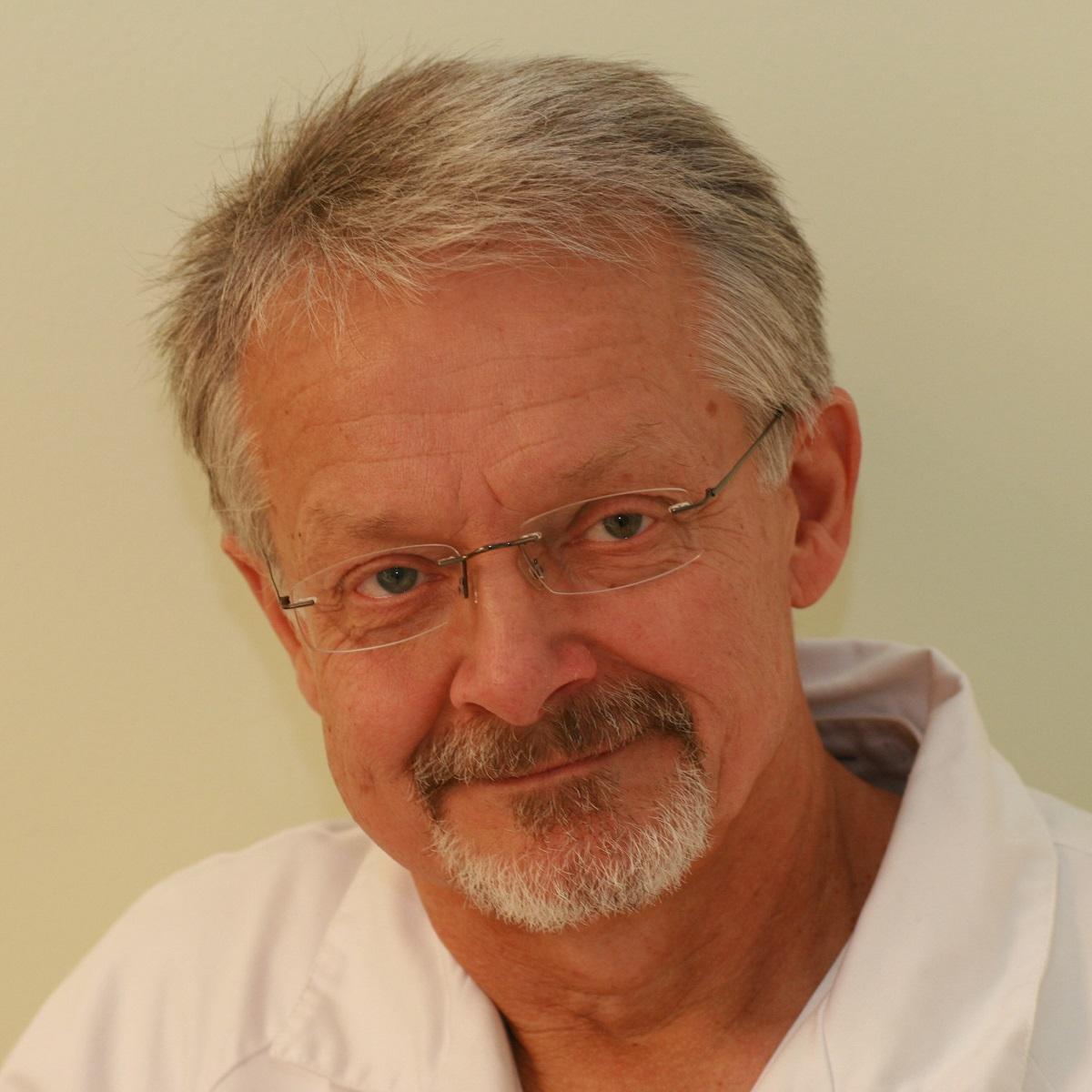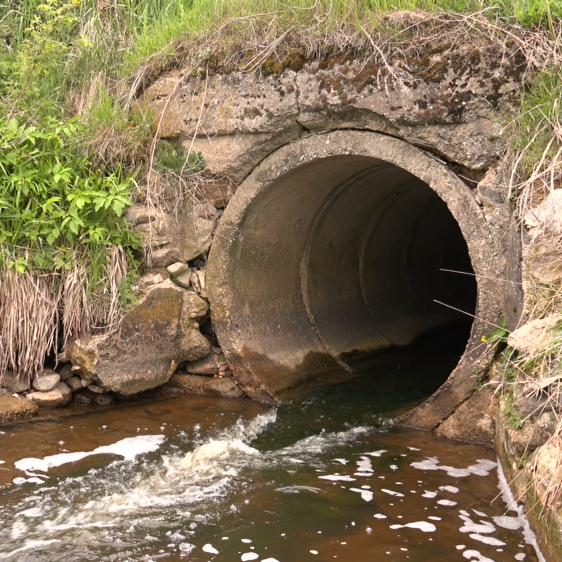
Member blog | Bertil Hagström, General practitioner, PhD - Swedish Doctors for the Environment
After passing through sewage treatment plants, approximately 40 tonnes of antibiotics and other drug residues can be found in Sweden’s sewage sludge, along with a variety of other hazardous chemicals. Even larger quantities find their way into our lakes and seas.
As healthcare professionals, we have a responsibility to the health of our patients and communities. Whilst we must carefully consider the full impact of our prescribing practices and our own contribution to this growing issue, we cannot ignore regulatory and policy solutions – we must act as advocates for more sustainable sewage management.
The health and environmental effects of sewage sludge

Sludge spreading on productive arable land is neither compatible with sustainable food production nor the precautionary principle. The spread of toxic and hazardous sludge must be taken seriously and dealt with accordingly.
Sewage sludge is commonly spread on fields as fertiliser and many chemicals found in our food are partly derived from sludge-fed soils. Food produced on sludge-fed soils can have a negative impact on our health with increased risk of disease and reduced fertility. This, however, may only be the tip of the iceberg and in the long run we risk further environmental impacts and health consequences. Sludge spreading on productive arable land is neither compatible with sustainable food production nor the precautionary principle. The spread of toxic and hazardous sludge must be taken seriously and dealt with accordingly.
Sewage sludge, drugs, and chemicals
Sewage sludge contains antibiotics and other pharmaceutical residues. Current measurements in Sweden show that approximately 40 tonnes of medicines end up in wastewater and sludge.
There are also a variety of other harmful substances found in sludge, including endocrine disrupting chemicals, brominated flame retardants, the PFAS chemical group, cadmium and other heavy metals, nanomaterials, infectious agents, and microplastics. Some of these substances, especially endocrine disruptors, are epidemiologically linked to not only harmful effects on the ecosystem but also to humans, and can result in reduced fertility, genital malformations, osteoporosis, cancer, diabetes, obesity, and impaired mental development. If the spread of contaminated sludge continues to be permitted, the concentrations of metals and other organic substances in the soil will systematically increase over time, until critical levels can no longer be avoided.
Image


From a medical standpoint
Drug treatment is the doctor's most important tool, yet it is a multifaceted mission. Those of us who prescribe medicines of course have a responsibility for the proper treatment of the patient. Patient health is undoubtedly our top priority, - however as human health is intrinsically linked to the health of our environment, we must also take environmental considerations into account whenever possible in our prescribing.
Firstly, doctors prescribe a variety of drugs, which partly end up in wastewater treatment plants. We know that diclofenac is harmful for fish and oxyquinolines are harmful to microorganisms and risk creating multi-drug resistance. With increasing evidence of such risks, the precautionary principle must be applied, and doctors must strive to prescribe medicines with the greatest possible environmental considerations to minimise these risks and to contribute to a cleaner, healthier environment.
Patient health is undoubtedly our top priority, - however as human health is intrinsically linked to the health of our environment, we must also take environmental considerations into account whenever possible in our prescribing.
Secondly, the mission of healthcare is to deal with disease, the incidence of which may itself originate from sludge contaminated with drugs and chemicals. Agriculture and sludge management that might put the health of the population at risk is therefore unacceptable. Human health depends on a healthy and clean environment - the phasing out of sludge spreading is vital for both.
Sewage sludge is an inevitable by-product of wastewater treatment plants, and therefore careful management is crucial, especially due to increasing volumes. In short, we are faced with a problem of disposal: how do we dispose of sludge when we know that it is not compatible with good health for the population in the long run? Sustainability must become the highest priority when handling sewage.
Tackling the issue – upstream or downstream?
Many claim that sludge is harmless and then spread it on arable land. "Sludge spreaders" argue that sludge contains phosphorus and nitrogen and therefore should be accepted as fertiliser. It is also claimed that the spreading of sludge is part of the circular economy, i.e. the recovery of resources. A blind eye seems to be turned to the negative consequences for health and the environment.
Industry groups believe that it can work upstream by asking all "polluters" to simply stop polluting. It is, of course, important to do so, but we must take a holistic approach to the problem, and thinking that we can achieve the objective of removing toxic chemicals from sludge by non-compulsory measures is naïve.
The continued spread of hazardous sludge is not acceptable from a health or environmental perspective and sewage treatment methods need to be significantly improved. There are a combination of different techniques that can already be implemented today, for example HTC (hydrothermal carbonisation) combustion of dry sludge and phosphorus extraction from ash. Some EU countries have already banned the use of sludge on arable land.
As healthcare professionals, we have a duty of care to our patients but also to protect the land and reduce the harm sewage sludge may be causing to our communities’ health, not only for the current generation but also for the future.
Political decisions will soon be taken on the matter here in Sweden; hopefully, the Swedish government will choose a gradual phase-out of sludge spreading. The worst case would be continued sludge spreading supported with arguments of improved quality of the sludge, without any concrete, binding solutions. This is not just a local issue for Sweden: issues around water and waste management often have cross-border, international impacts, and sludge spreading continues to be practiced elsewhere in Europe.
As healthcare professionals, we have a duty of care to our patients but also to protect the land and reduce the harm sewage sludge may be causing to our communities’ health, not only for the current generation but also for the future. As prescribers of medicines, we need to be aware of the impact of our prescription practices, and what is within our gift as trusted members of our community to advocate for policies that better protect environmental and public health.
If you are a health professional and would like to find out more about how you can reduce the environmental impact of your everyday work, as well as act as an advocate for sustainability inside and outside of your place of work, please consider joining one of our networks of dedicated health professionals: